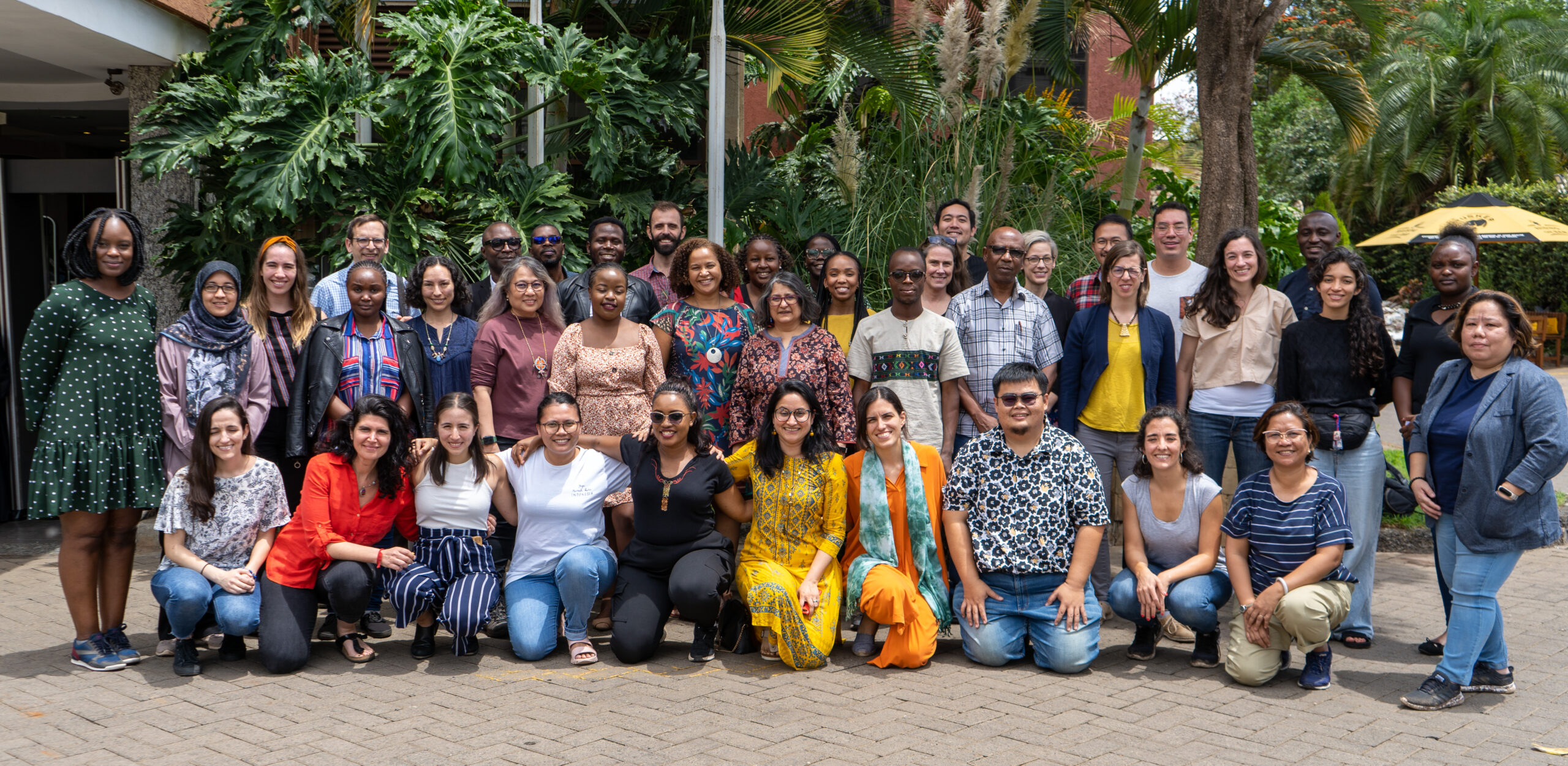
First, a note:
The blog article below is an edited version of the 2023 Learning Agenda end-of-year email newsletter.
Beginning in 2024, the Learning Agenda is launching a quarterly newsletter that will share exciting updates and announcements from across the Learning Agenda universe.
Want to begin receiving the Learning Agenda Newsletter in 2024? Sign up here!
Celebrating a legal empowerment win? Holding a validation workshop to share your findings? Presenting your work at a conference? Getting together with another Learning Agenda community member? Send us an update here and we’ll feature it in an upcoming newsletter!
“When you do little pieces of resistance, you have a puzzle, [creating] a whole picture of social change.”- Denise Dora, THEMIS (Brazil), Repression and Closing Civic Spaces Roundtable Session #6
As we close out another year of the Learning Agenda, it’s remarkable to look back and see how much we’ve learned collectively. These moments of shared learning are pieces added to the grassroots justice movement puzzle. Over the course of 2023, we came together in several convenings to reflect collectively on burning questions. We also planned a series of learning arcs to foster collaboration and comparative learning on key themes, including launching roundtables on repression and closing civic spaces and a lightning course on organizing for paralegals and frontline advocates.
In 2024, let’s continue to gather around the proverbial puzzle, adding our unique pieces of insight and innovation to build a comprehensive picture of global justice for all.
Thank you for the courageous work you continue to do, and the learning you continue to support in this movement. We hope you enjoy highlights below of the many puzzle pieces we’ve added in 2023!
Poorvi, Jackie, Maria, Aimee, Marlon and the Learning Agenda team at Namati
After more than a year of zoom calls, the Learning Agenda community finally had the pleasure of coming together in Nairobi, Kenya!
Participants representing 13 organizations from 12 countries–who are taking up the most burning questions facing our field through participatory action research–came together for a week in March. Participants shared “what works” in different contexts and how to collectively deepen the grassroots justice movement.
Additionally, the solidarity and bonds created over an impressive snack collection and safari drives will surely power our movement to new strengths.
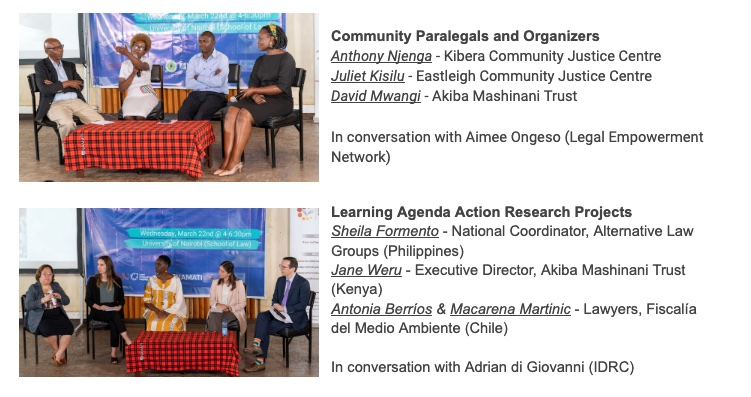
While in Nairobi, we took the opportunity to showcase how research and learning is strengthening the global movement for grassroots justice.
At a high-powered event at the University of Nairobi, community paralegals showed how they help to close the gap in access to justice, and cohort projects shared how they use systematic research and learning to build community power, increase participation of women and marginalized groups in decision making and advance changes to laws and institutions.
Noting the power of the movement, the Chief Justice of Kenya formally announced new initiatives that recognize and offer support to the role of community paralegals in the justice system!
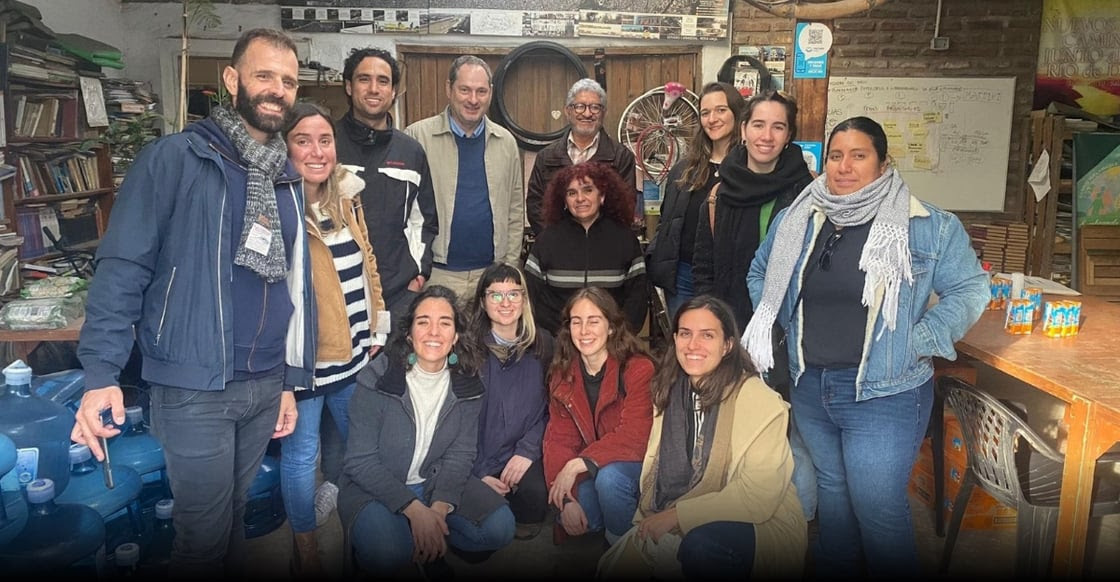
In July, The Latin America PAR projects – ACIJ (Argentina), FIMA (Chile) and ProDESC (Mexico) – gathered in Buenos Aires to exchange learnings and build research-informed strategies to drive change in their countries and the region. Discussions included: how to translate research into action, how to deepen the participation of women and marginalized groups in decision-making, and how to counter destructive development models.
Together, they outlined a vision for supporting advocacy efforts at the national, regional, and global levels. Read about it here.
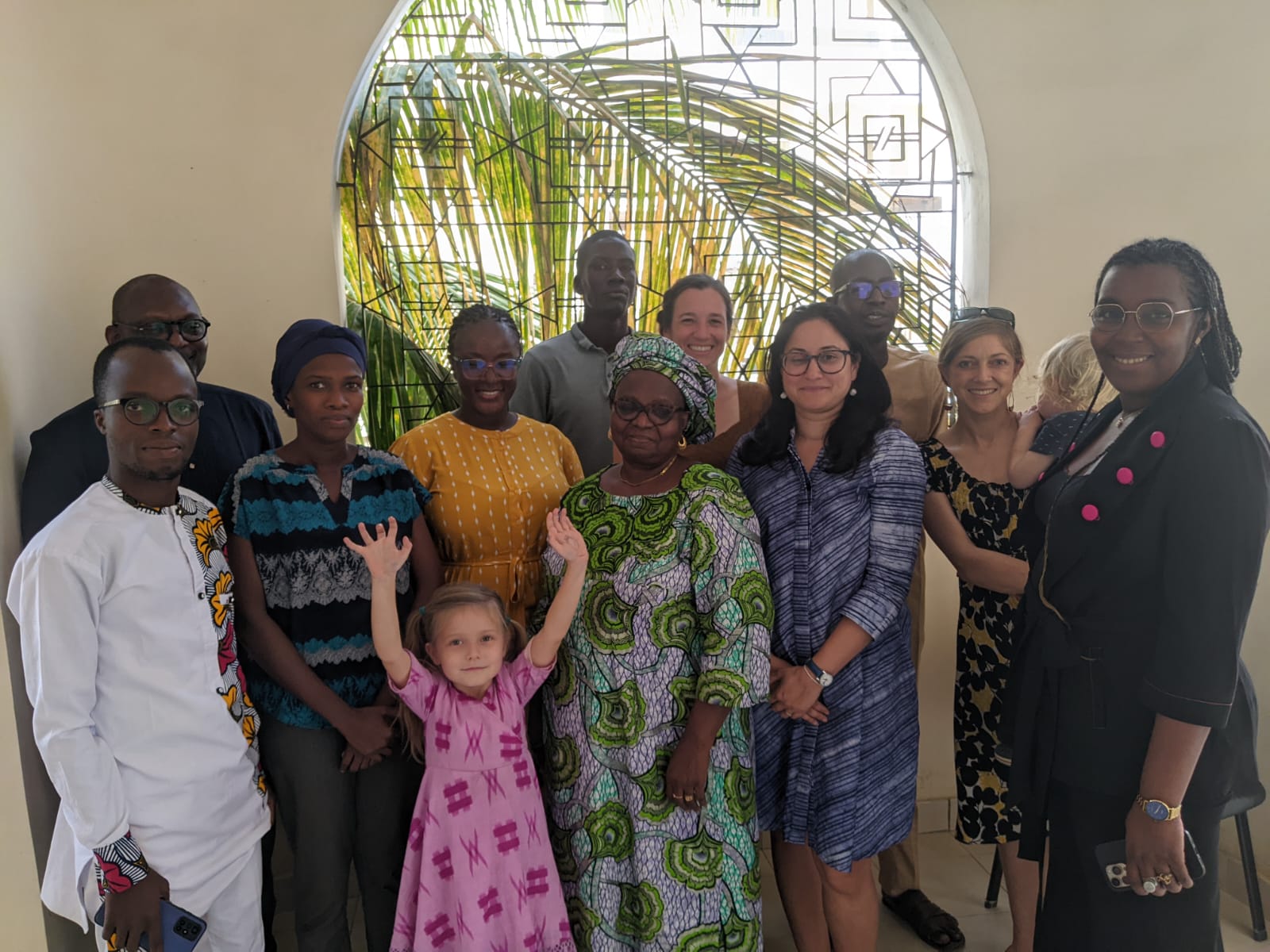
In November, the PAR projects in the West Africa region – led by JEI (Nigeria, Benin, Senegal), Synergia (Nigeria and Togo), CED (Cameroon) and Natural Justice (Senegal)– came together for their first in-person convening in Dakar. The projects spent three days diving deep into methodological issues, discussing what impact they seek, and how to ensure that the impact is gender transformative.
JEI’s partners in Senegal– UrbaSEN and the Federation Senegalais des Habitants– led us through a site visit to urban centers in Dakar where they are conducting an urban poverty and justice survey. It was an inspiring example of how participatory research can not only generate data about justice needs, but be a tool for organizing and empowerment.
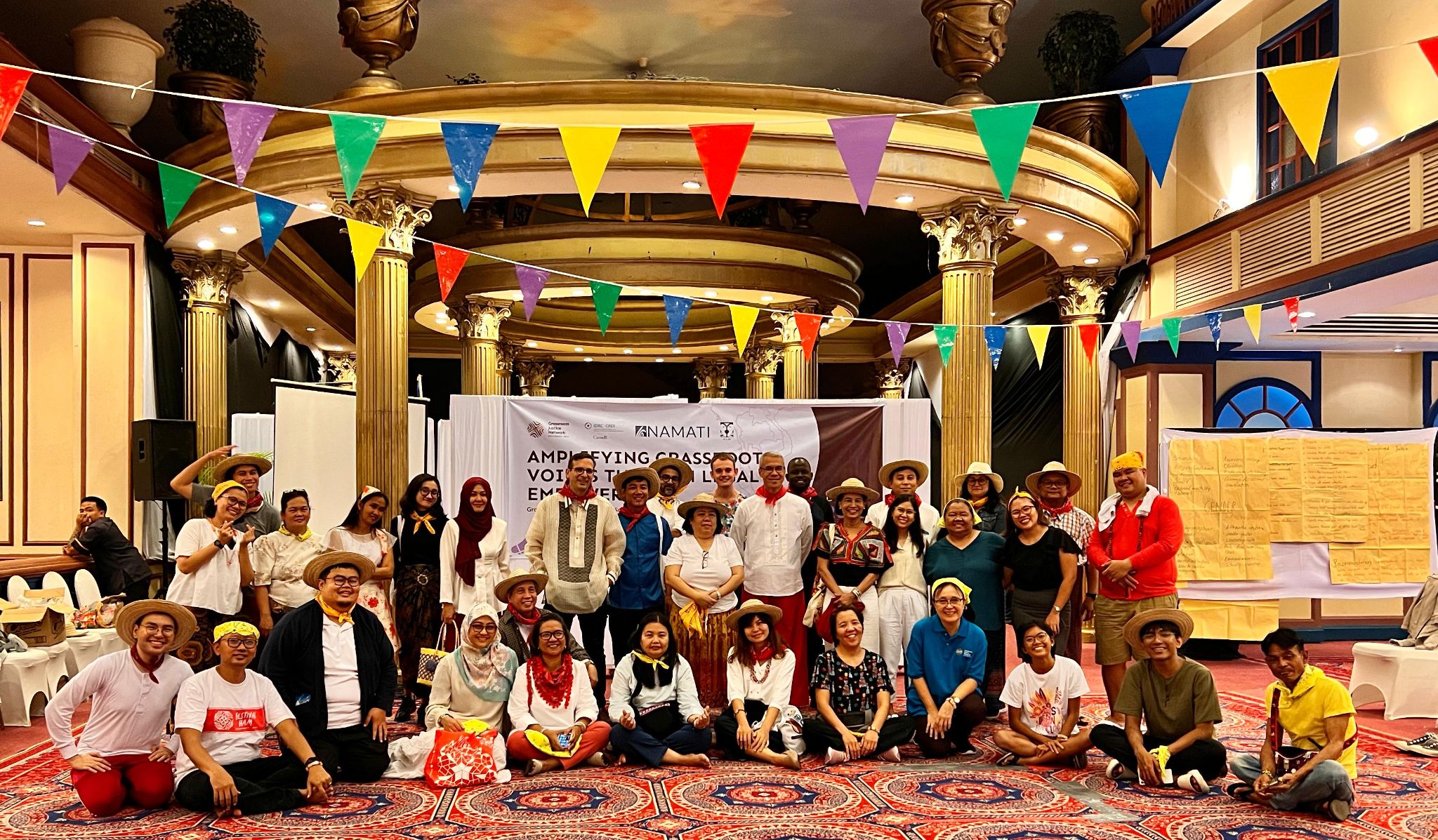
In December 2023, cohort projects from the South East Asia region shared emerging lessons from their research at the 12th Asia Pro Bono conference in Cebu, Philippines and the meeting of the Southeast Asia core group. Participants included: YLBHI (Indonesia), Asylum Access (Malaysia), ALG (Philippines) and their partners Indonesia Judicial Research Society (Indonesia), Community Resource Centre (Thailand), and DHRAA (Malaysia).
Participants shared their use of creative legal empowerment strategies, like paralegal development, strategic litigation and policy reform advocacy to close access to justice gaps and build community empowerment. The context of shrinking civic spaces increasingly dominates in the region, and the emerging lessons from these projects are showing how legal empowerment can help to fight repression and advance a deeper version of democracy.
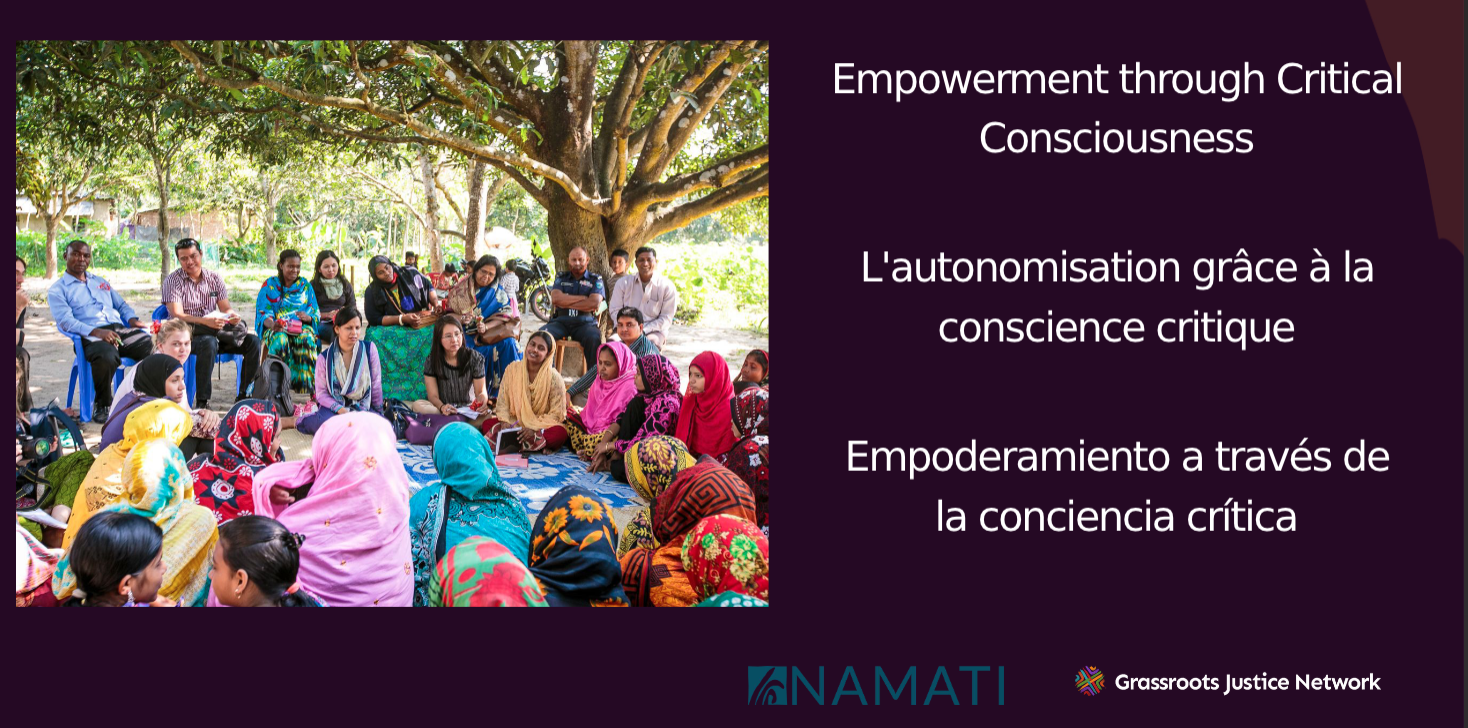
In October 2023, 40+ paralegals and grassroots organizations came together for the first ever ⚡Lightning course on Empowerment and Political Consciousness ⚡Over the course of four sessions and lively whatsapp discussions, participants from around the world shared the practical strategies that they use to (1) demystify the law and build political consciousness with justice seekers in their communities, (2) build unity, moving from individual to collective demands for justice; and (3) build solidarity across diverse groups.
“The fruitful deliberations on concepts like unity and solidarity have not left me the same. As an activist and community paralegal, I have learnt that unity is vital if you’re to advocate for rights of the marginalized and oppressed. …it’s that collective power that you build as a leader in society that will uplift voices of many, that will build that confidence in people to express their concerns and create the positive change we want to see.” – Kisakye Doreen, Community Paralegal, FIDA Uganda.
In 2024, we’ll continue to deepen learning on law and organizing, and how to build community power. We’re particularly excited to engage with paralegals and frontline justice defenders on this theme.
Across the Network, members are sharing concerns about increasing repression and closing civic spaces. It raises some big questions for our community– How can we continue to do legal empowerment work, while maintaining safety, in repressive contexts? And how can legal empowerment offer a pathway to a deeper and more resilient version of democracy?
Between May and November, we partnered with ALG to host a series of six roundtables to address these questions. A group of 25+ practitioners unpacked a common “playbook of repression” around the world, shared and discussed strategies that they were using to respond and protect, and mapped out a bold vision for expanding collective learning and action in 2024.
Anu Joshi (advisor) and Catalina Marino (ACIJ, Argentina) kicked off the Community Participation learning arc with a blog article and proposal to use podcasting as a primary mode of learning and exchange. In 2024, we’re excited to dig into how each of the cohort projects is expanding the participation of communities in decision-making spaces through a series of audio-first stories.
An overview of all the learning arcs and what’s coming up is here.
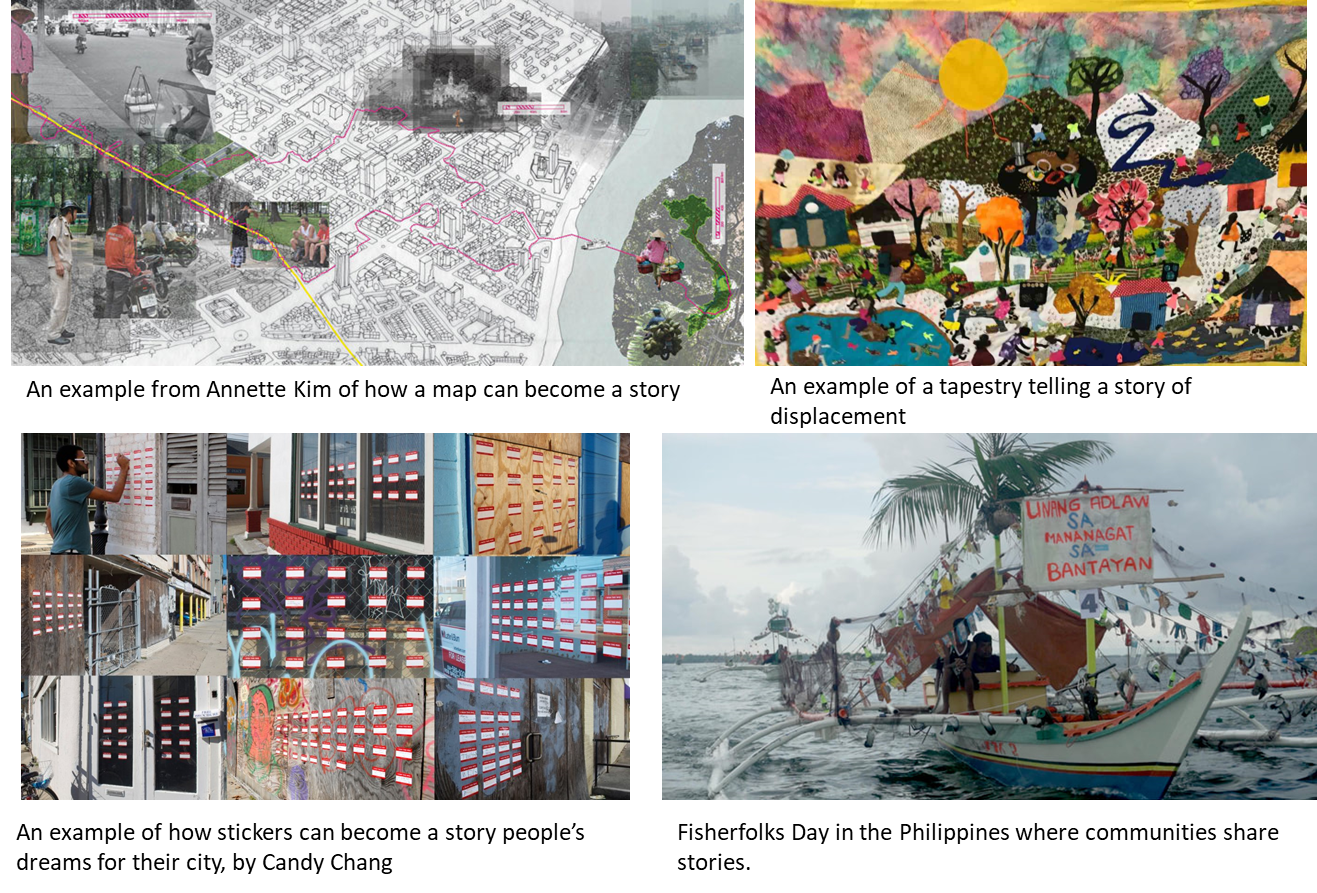
Members of the Learning Agenda community are generating rich data and evidence. To help turn that data and evidence to life, and use it to drive change, we hosted a storytelling season. It included two virtual workshops, asynchronous interactions, and peer-learning. Storytelling guides (Maria Atuesta, Tom Weerachat and Walter Flores) shared resources, examples of effective stories, and offered coaching sessions. 21 participants from 11 organizations joined the season, and learned how to use data gathered through their participatory action research projects to build compelling stories that can drive the changes they’re seeking.

Jackie Sofia is thrilled to join the team as Namati’s Learning Agenda Officer. In her position, Jackie is focused on synthesizing and sharing emerging learning in accessible, creative, practitioner-friendly formats. She has extensive experience in refugee rights and women’s rights, with a geographic focus in the SWANA region. Her background spans the worlds of participatory research, documentary media and social entrepreneurship. Jackie loves cooking, coffee, analogue photography and being outdoors.
We’re grateful for all the opportunities to come together in 2023 and share learning with each other. And we’re excited to build on this in 2024 with opportunities including: